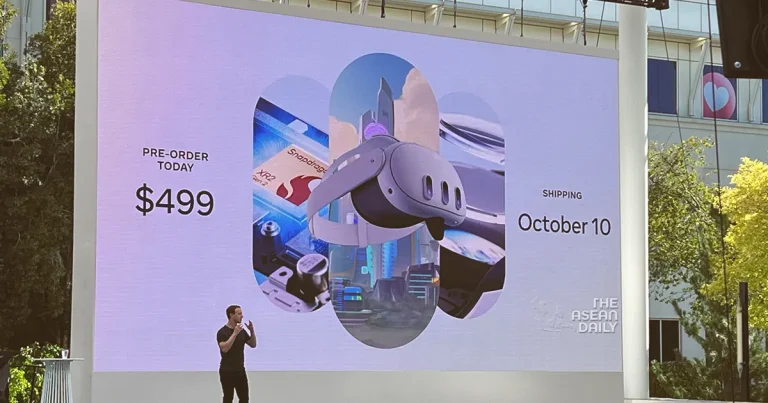28-9-2023 (CALIFORNIA) Mark Zuckerberg, the Chief Executive of Meta Platforms, unveiled a range of new AI products for consumers during the Meta Connect conference, marking the social media giant’s biggest event of the year. This conference also marked the company’s first in-person gathering since the start of the pandemic.
Zuckerberg introduced a new generation of Meta’s Ray-Ban smart glasses set to ship on October 17, priced at $299. These smart glasses will include a new Meta AI assistant and will enable users to livestream what they are seeing directly to Facebook and Instagram, a significant advancement over the previous generation’s photo-capturing capabilities.
The latest Quest mixed-reality headset is set to ship on October 10 and was introduced alongside the company’s first consumer-facing generative AI products. Among these products is a chatbot named Meta AI, capable of generating both text responses and photo-realistic images.
Zuckerberg described these innovations as bridging the virtual and real worlds, emphasizing that part of what Meta offers is affordable or free AI that can integrate into daily routines. The Quest headset is positioned as a bestseller in the emerging virtual reality (VR) space, with the company’s executives highlighting its value compared to a forthcoming, more expensive headset from Apple.
Meta AI will function as an assistant integrated into the smart glasses, starting with a beta rollout in the United States. A software update planned for the next year will enhance the assistant’s capabilities, enabling it to identify objects and locations that users see and perform language translation.
Meta developed Meta AI using a custom model based on the powerful Llama2 language model, which the company released for public commercial use in July. The chatbot will access real-time information through a partnership with Microsoft’s Bing search engine, as Zuckerberg disclosed in an interview with Reuters.
Notably, Meta has taken steps to filter personal data from the training model and imposed limitations on the content generated by the tool, including the prohibition of creating realistic images of public figures.
Furthermore, Meta announced the development of a platform that both developers and ordinary users can utilize to create custom AI bots. These bots will have profiles on Instagram and Facebook and eventually serve as avatars in the metaverse. To demonstrate the tool’s capabilities, Meta created a set of 28 chatbots with personalities styled after celebrities like Charli D’Amelio, Snoop Dogg, and Tom Brady.
The company’s announcements appear to be focused on enhancing existing applications and devices, rather than introducing new advertising opportunities or revenue sources. Experts in the field, like Bob O’Donnell, chief analyst at TECHnalysis Research, do not foresee the monetization of AI products from Meta occurring in the near future. Instead, the company appears more interested in facilitating a platform for other developers.
Additionally, Zuckerberg revealed that Xbox cloud gaming will be available on the Quest in December.
These developments underscore Zuckerberg’s strategy in navigating the shift in investor interest this year, moving from augmented and virtual reality technologies to artificial intelligence. Last year, investor criticism of Meta’s significant spending on the metaverse led to layoffs of tens of thousands of staff to sustain Zuckerberg’s vision. The announcements from the Meta Connect conference provide insights into the kind of apps that developers may create for Meta’s latest hardware devices and offer investors a glimpse into whether the company’s extensive investments will ultimately pay off.




